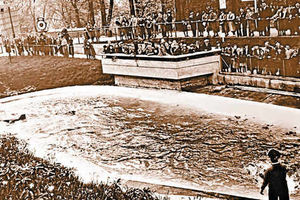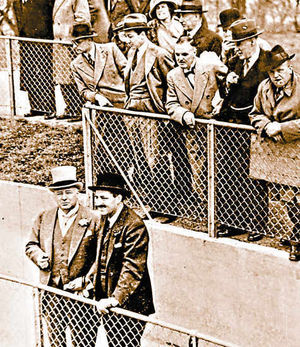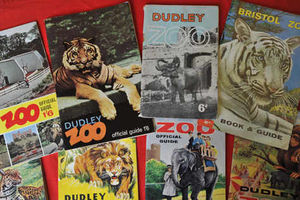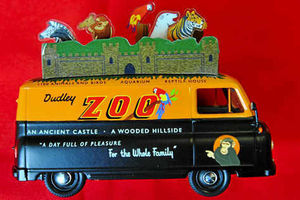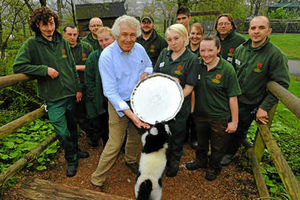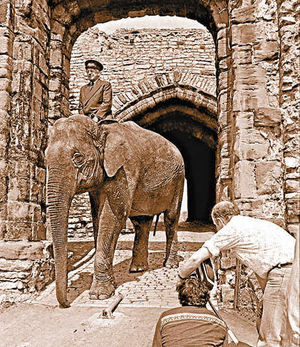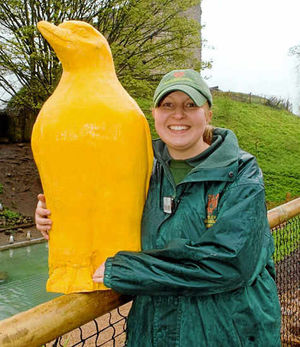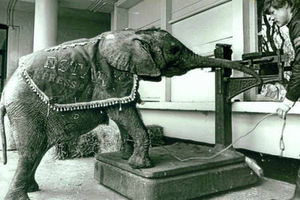Dudley Zoo celebrating 75th anniversary
When it roared into life 75 years ago, Dudley Zoological Gardens was a worldbeater – the "most modern in Europe" with revolutionary buildings that let people get as close to the animals as possible.
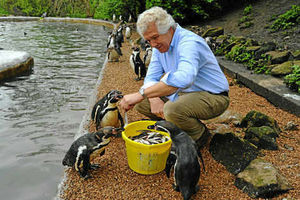
As Dudley Zoo celebrates its 75th anniversary, Louise Jew reports on its proud past and its plans for the future
When it roared into life 75 years ago, Dudley Zoological Gardens was a worldbeater – the "most modern in Europe" with revolutionary buildings that let people get as close to the animals as possible.
Click on the image on the right to see more pictures of the zoo from times gone by.
And West Midlanders went animal crackers for it, with 100,000 descending on Dudley in the hope of seeing creatures they had only ever been able to read about before.
Two openings were held – one on May 6, when the Earl of Dudley, owner of the 30-acre site where the 11th century Dudley Castle stands as the proud centrepiece, and local sausage butcher Edward Marsh, of Marsh and Baxter fame, proudly launched their pet project.
It was the second public opening, on May 15, when 100,000 clamoured to be let in but only around 55,000 lucky individuals actually got in. At times the queues were nearly a mile long and it was midnight before the crowds finally left Dudley.
It was constructed as a "zoo without bars" and the architects were renowned modernists – the Tecton Group, led by Russian-born Berthold Lubetkin.
They used reinforced concrete to create the distinctive, thin-walled Tecton buildings, designed to protect the welfare of the animals while meeting visitors' demands to get a clear, but safe, view.
Since that first glimpse by eager Black Country folk of a world full of animals they had never seen before, including elephants, giraffes, sea lions, flamingos, lions and polar bears, millions have flocked to the zoo.
And it remains one of the top tourist attractions in the West Midlands, with 219,000 visitors last year, and many local family albums are packed with images of days out at the zoo.
But it has not all been plain sailing.
The Second World War meant that food, even for humans, was scarce. West Midlanders rallied to grow fruit and vegetables to make sure the animals did not starve, although the number of animals was severely depleted by the end of the conflict.
Staff began to restock after the war and the 1950s and 60s were once again halcyon days for the zoo, with attendances up.
In 1970 the Scotia leisure group bought the zoo. Among the main attractions in the 1960s were Cuddles the killer whale and Bonzo the gorilla, who died about 20 years ago aged 45. But modifications by Scotia to the dolphin and whale pools, adapted from the seal pools, fell foul of local planning laws and the zoo was ordered to return them to their original state.
As the zoo was not prepared to invest in purpose-built pools, Cuddles was due to be moved to Flamingoland in Yorkshire but sadly died in February 1974 just three days before the transfer.
The zoo went into receivership in 1977 but six months later Dudley Council stepped in to buy the zoo and it changed hands for £450,000.
The council invested £250,000 of that but it pledged that ratepayers' money should not be spent on bailing out the attraction.
The Dudley and West Midlands Zoological Society was formed in February 1978 as a charity, with Bristol Clifton and West of England Zoological Society as the major shareholder.
A massive appeal was launched, with the Express & Star and members of the public rallying to raise money to save their zoo.
As part of this drive, during the late 1970s, Express & Star readers brought an orphaned baby elephant from South Africa, supplied by Bristol Zoo, to Dudley. Readers named the 300lb elephant Estar and it became a local celebrity. Eventually, the council was repaid its £250,000 and the balance of the purchase price covered through public donations and good housekeeping at the zoo. The council still owns the land today, while the zoological society runs the attraction.
Two Queen Elizabeths have visited – the first in 1575 as a guest in the Great Hall of Dudley Castle and, more than 400 years later in 1994, our present Queen was welcomed to open an interpretation centre.
Peter Suddock has been chief executive at the zoo for the last 19 years and reckons it is the "best job in the world."
"Most people these days don't have animals and our zoo is often their first point of contact with them," he said.

